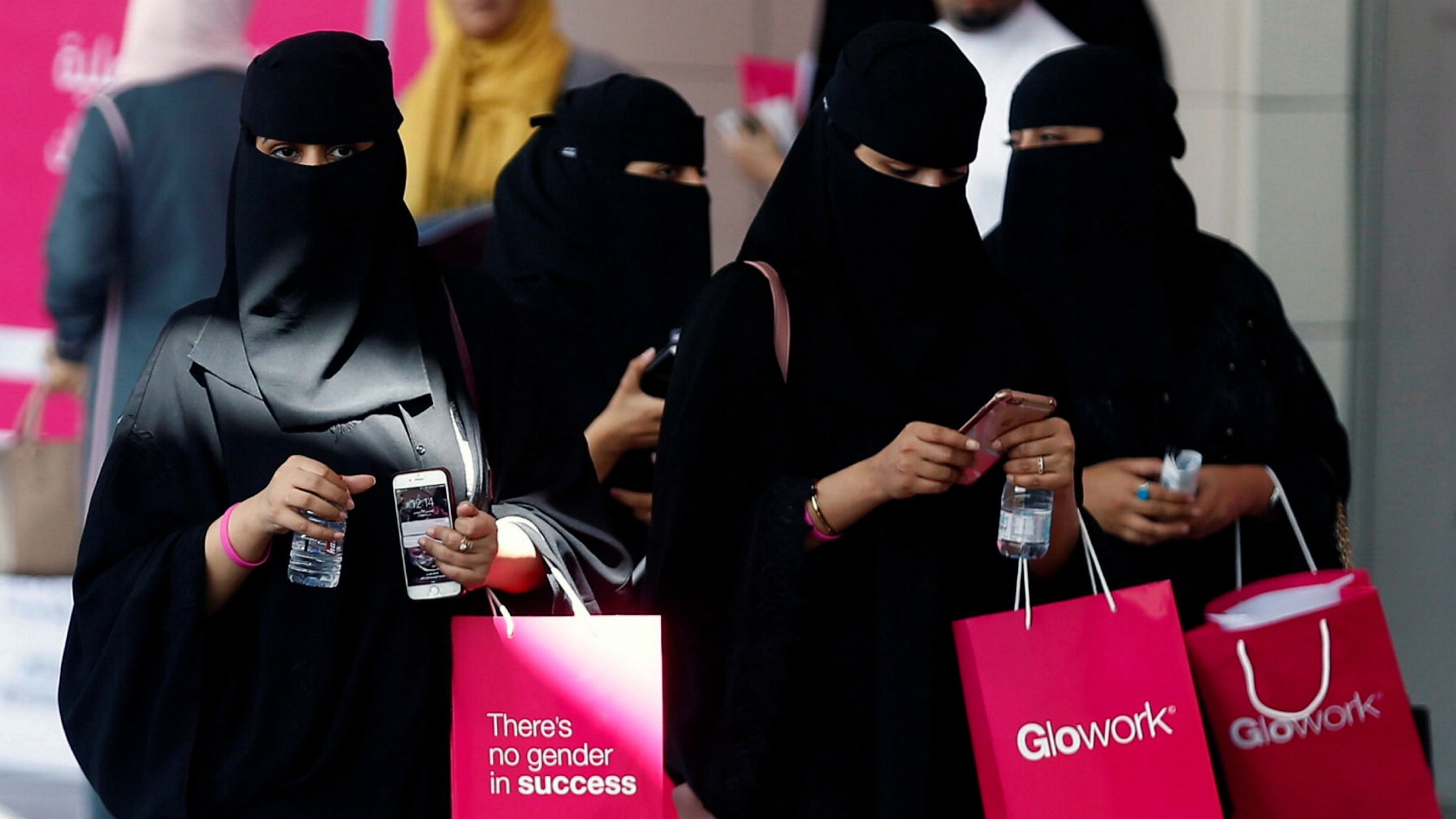As the world lauds the Saudi king’s decision that revoked a driving ban on women, the existing restrictions continue to plague half the population in this desert kingdom.
King Salman bin Abdulaziz’s decree stipulated that the move must "apply and adhere to the necessary sharia standards", referring to Islamic law, but did not elaborate, prompting speculation that women may need a higher minimum age threshold or allowed to drive for limited hours of the day.
A government spokesman clarified though on Thursday that women will be allowed to drive from the age of 18 when the royal decree takes effect next June. The statement by Interior Ministry spokesman Mansour al-Turki partially allayed fears of tighter controls when women finally take the wheels.
However, concern prevails over the rigid and archaic barriers that still treat women in the conservative kingdom as second-class citizens.
Women activists threatened?
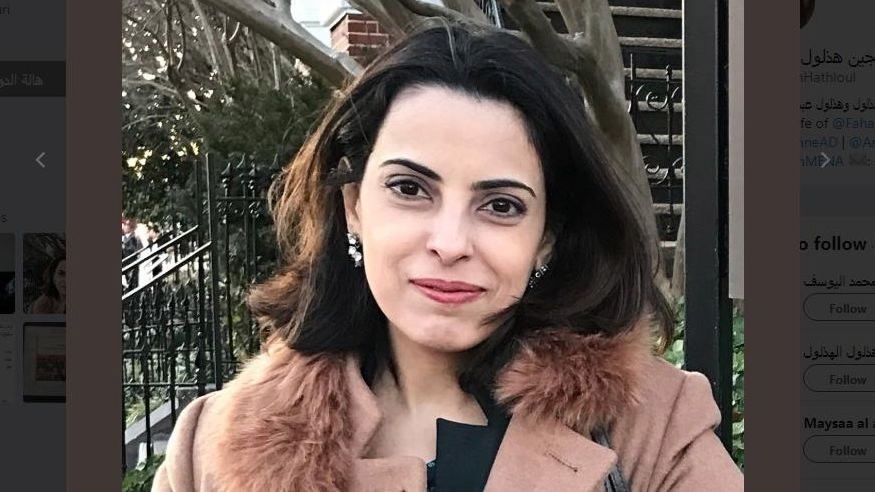
Hala Al-Dosari, Saudi activist and scholar at Radcliffe Institute for Advanced Study Harvard University. /Twitter @Hala_Aldosari Photo
Hala Al-Dosari, Saudi activist and scholar at Radcliffe Institute for Advanced Study Harvard University. /Twitter @Hala_Aldosari Photo
According to reports, the very day lifting of the ban was announced, the Saudi royal court allegedly made phone calls to several women activists linked to the "driving campaign" warning them against speaking to the press and from making any comment on the decision.
Hala Al-Dosari, a Saudi woman activist who has previously driven several times in Saudi Arabia as part of protest campaigns, revealed in her tweets that most women activists who lobbied for driving received threatening phone calls from the Saudi royal court.
"Most journalists are telling me none of the activists are able to speak or respond to them after the calls. It appears that they are being silenced while the state promoted figures are speaking to the media instead. This is similar to the calls received from the Ministry of Interior in 2013 to warn activists against driving," said Al-Dosari in a series of tweets on Thursday.
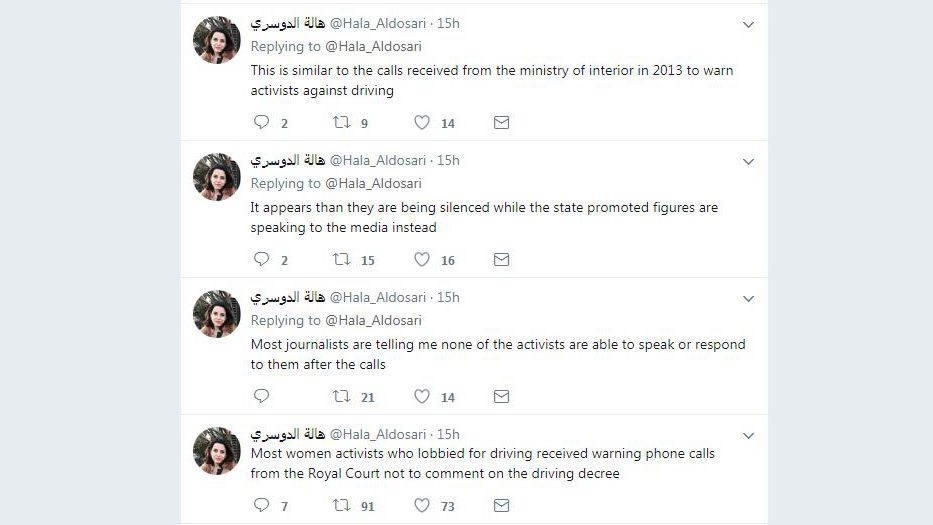
A screenshot of Hala Al-Dosari's tweets alleging women activists receiving threatening phone calls from Saudi royal court.
A screenshot of Hala Al-Dosari's tweets alleging women activists receiving threatening phone calls from Saudi royal court.
"One of the women told me she actually asked the person who called her, ‘If I want to give a positive statement, what’s wrong with that? What would happen to me?’ His tone was very police-like, very harsh. He said: ‘You know exactly what will happen to you. Measures will be taken against you.’ He didn’t identify which measures, but we can infer that it would be something like detention or interrogation," claimed Al-Dosari, currently a scholar at Radcliffe Institute for Advanced Study Harvard University, in an interview to American magazine The Atlantic.
While she described the decree as "a good step" admitting it will improve many women’s lives as well as the Saudi economy, Al-Dosari remained skeptical about its political motivations. "Just like the ban it overturns, the decree is not really about granting women more autonomy, but about consolidating political power," she said.
Crippling restrictions prevail
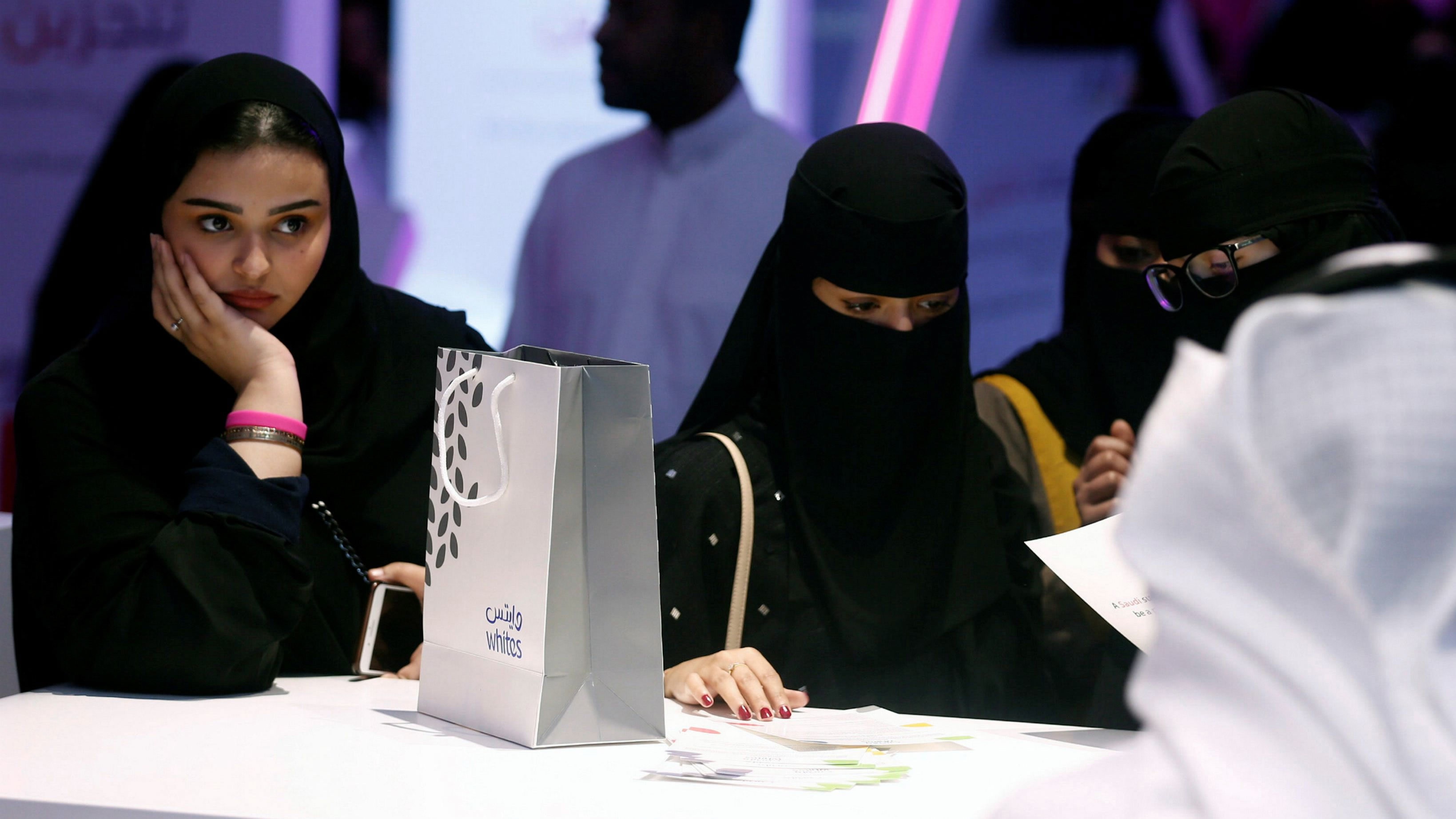
Saudi women take part in Glowork exhibition in Riyadh, Saudi Arabia, on September 28, 2017. /Reuters Photo
Saudi women take part in Glowork exhibition in Riyadh, Saudi Arabia, on September 28, 2017. /Reuters Photo
One of the most crippling restrictions in place in Saudi Arabia is its guardianship system. Under "mahram" (male guardian), women must have a male family member’s permission for the most basic of things, such as traveling, applying for a passport or opening a bank account.
Before minor reforms were introduced this May, women couldn’t even visit a doctor without a male guardian’s approval. Women still can’t marry without her father’s or brother’s consent.
In addition to the Islamic restriction found in most Arab countries preventing Muslim women from marrying non-Muslims, Saudi Arabia's Permanent Committee for Islamic Research and Issuing Fatwas (religious decrees) - a governmental body - has ruled a Sunni woman should not marry a "Shiite man or a communist (atheist)", AFP reported.
The kingdom's dress code makes it mandatory for women to wear an abaya (cloak) and veil, though the latter is selectively enforced.
Can women buy their cars?
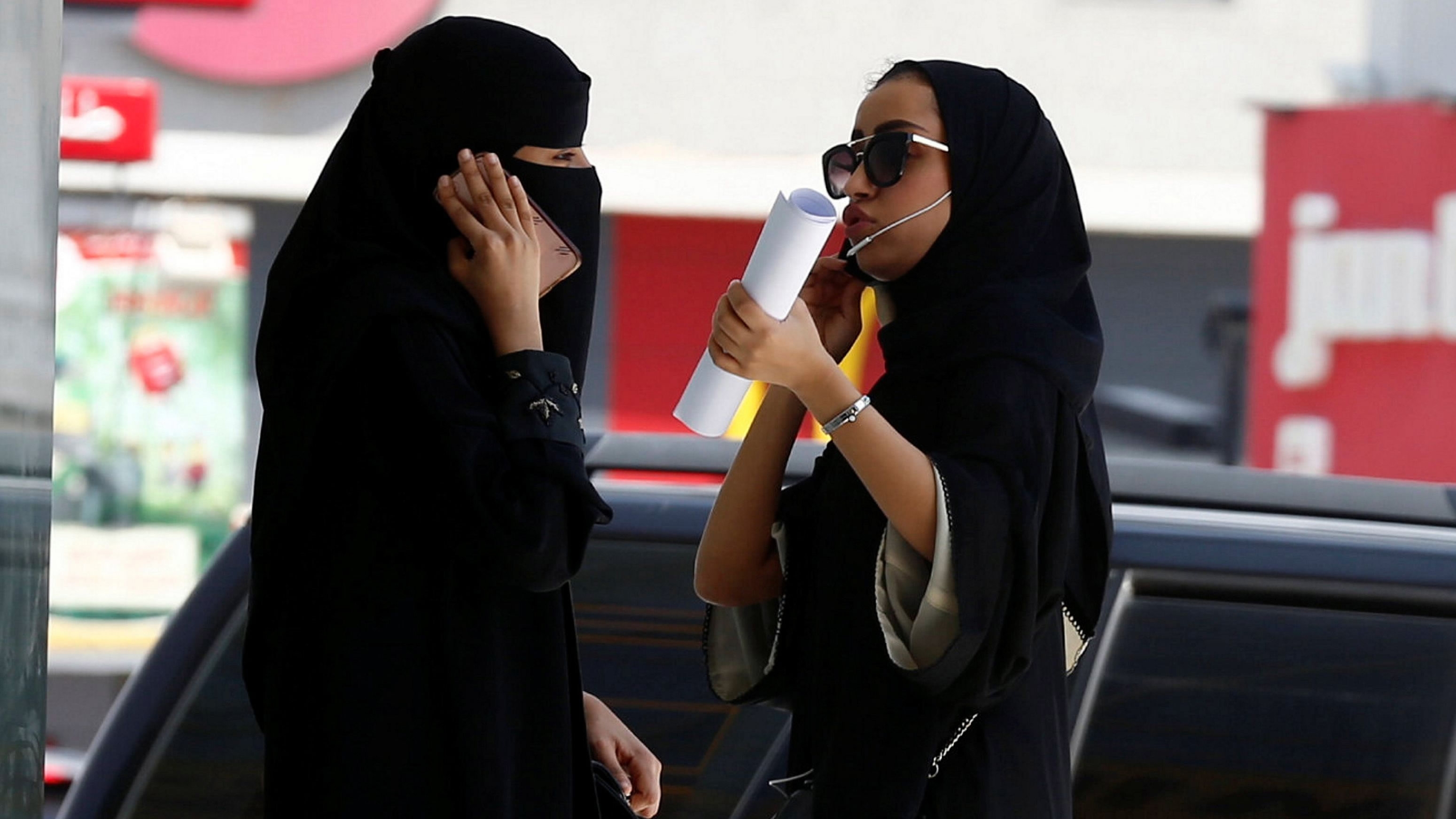
Saudi women speak on phones in Riyadh, Saudi Arabia, on September 27, 2017. /Reuters Photo
Saudi women speak on phones in Riyadh, Saudi Arabia, on September 27, 2017. /Reuters Photo
Saudi authorities have assured though that woman won’t need permission from male guardians to get a driving license nor would they be required to have a guardian in the car.
However, some reports suggest that many women may still not have the freedom to buy their own cars. "If you don’t have credit, if you don’t have money, your male guardian will be the one to decide whether you buy a car or not," Rebecca Lindland, an analyst for US-based Cox Automotive who has studied the Saudi Arabian market told AP.
Lindland added however if a family already has enough vehicles, with a male behind the wheels and woman as a passenger, the woman could simply start driving the vehicle they already own.
"The family has always operated on the basis of dependency so that’s a big core restructuring of the family unit," Madeha Aljroush, who took part in Saudi Arabia’s first campaign to push for the right to drive in 1990, was quoted as saying by AP.
Although she felt the decision is reason enough to celebrate, Aljroush felt the right to drive will not immediately change women’s lives, but that it will change family dynamics at home and will change the economy. "Men used to leave work to pick up the kids. The whole country was paralyzed. It’s a restructuring of how we think, how we operate, how we move," she said
Meanwhile, an Arabic Twitter hashtag asking women what car they want to drive had gone viral ever since the decree was announced. Some users shared images of black matte luxury SUVs. Others teased with images of metallic candy pink-colored cars. A few shared images of cars encrusted with sparkly crystals.
#IamMyOwnGuardian
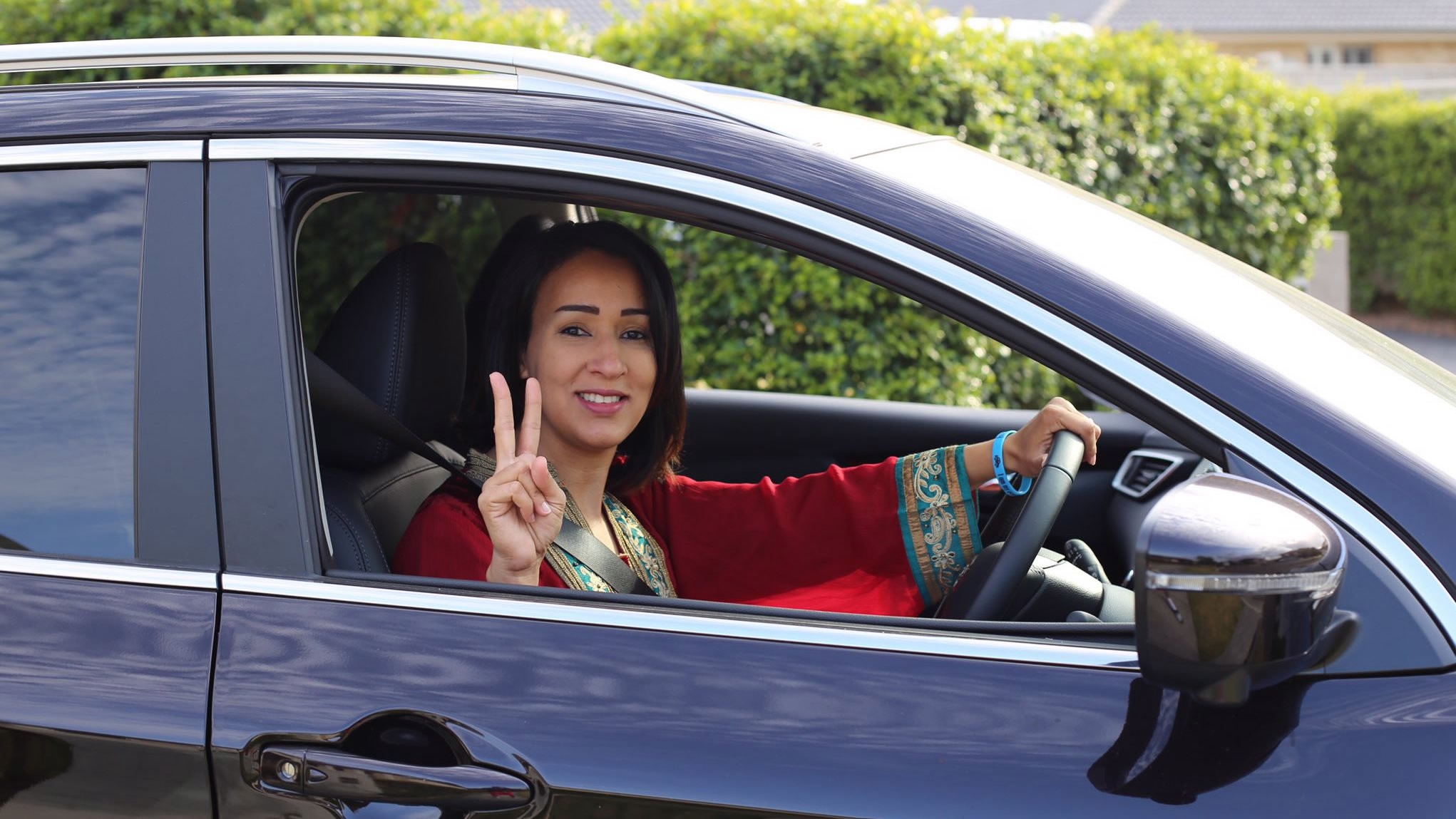
Saudi activist Manal Al-Sharif, who led the 'Women2Drive' protest movement in 2011. /Twitter @manal_alsharif Photo
Saudi activist Manal Al-Sharif, who led the 'Women2Drive' protest movement in 2011. /Twitter @manal_alsharif Photo
While praising the ban’s removal as a major step towards women’s autonomy and independence, human rights groups and women’s activists in Saudi Arabia have called on the country’s government to scrap a controversial male guardianship law.
"We also need to see a whole range of discriminatory laws and practices swept away in Saudi Arabia including the guardianship system," Amnesty International said in a statement.
United Nations human rights experts urged the kingdom to do more to ensure gender equality. "We now encourage the government to repeal all remaining discriminatory laws," two experts who report to the UN Human Rights Council said in a joint statement.
"If it is serious about the importance of women’s rights for economic reform, addressing remaining barriers to the human rights of women should be the next step in its ambitious reforms," said the UN investigator on extreme poverty Philip Alston and Kamala Chandrakirana, chair of the UN working group on discrimination against women.
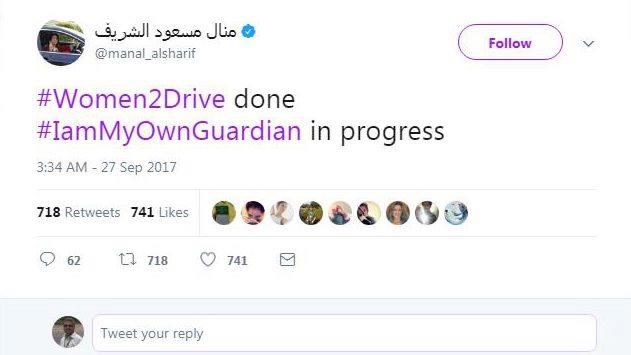
A screenshot of Manal Al-Sharif's tweet hinting at her next campaign.
A screenshot of Manal Al-Sharif's tweet hinting at her next campaign.
Saudi activist Manal Al-Sharif, who led the "Women2Drive" protest movement in 2011, is upbeat and set for her next campaign: "#Women2Drive done #IamMyOwnGuardian in progress," she tweeted.

